Centrist dads the sensible, vital force the mainstream parties should be wooing
Having voted both Labor and Liberal in recent elections, and with two teenagers living a suburban middle-class life, I identify with centrist dads.
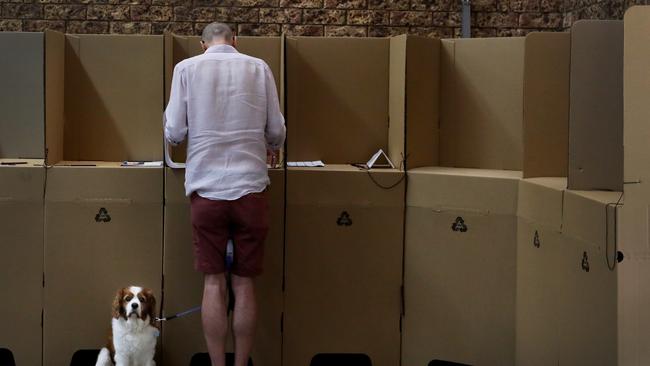
With more swinging voters than ever, as Labor and the Coalition bleed votes to minor parties and independents, a new cohort of middle-class swinging voters may have a significant say in election 2025: centrist dads.
You may have heard of doctors’ wives and soccer mums, battlers and tradies, and patio men. These are voters from across the spectrum, blue collar to middle class and upper class, who through the years have felt disenfranchised by the major parties and can be critical in deciding seats and determining elections.
The newest phenomenon is the rise of the so-called centrist dad. They, too, feel politically homeless but are not disengaged. They absorb information from a range of sources. They keep in touch with current affairs via newspapers, radio and television; they read books on policy, politics and history; and they listen to podcasts.
This new voting subgroup first came to prominence in Britain. Their go-to podcast is The Rest is Politics, presented by Alastair Campbell and Rory Stewart, who themselves straddle the political divide and have diverse backgrounds and experiences, and offer unvarnished opinions on politics and policy, and conduct interviews with leading politicians and policymakers.
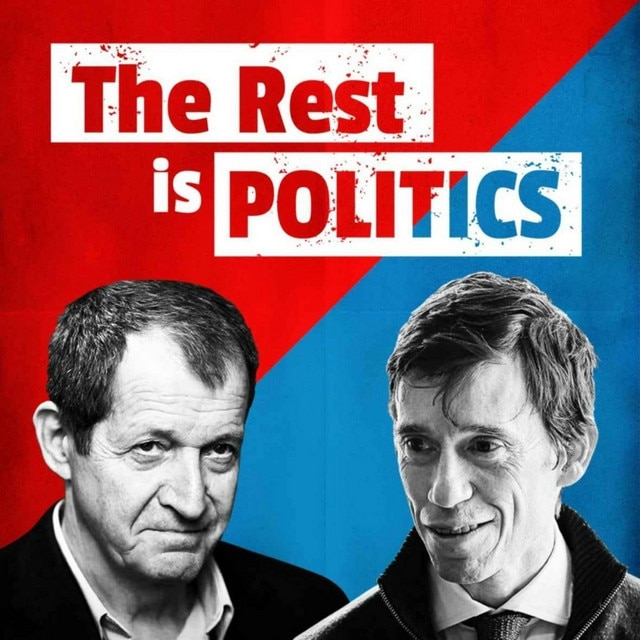
Campbell was British Labour prime minister Tony Blair’s director of communications and a journalist, has written many books, is a prominent commentator, a football nut, plays bagpipes and is a prolific diarist.
Stewart is a former Conservative Party minister, diplomat, charity worker and author, and is into long walks and silent retreats. They could not be more different.
Yet they have much in common. The Labour Party moved disastrously to the left under Jeremy Corbyn, has since moderated under Keir Starmer but is not centrist like Blair. The Conservative Party has moved further to the right, surrendered its credibility after its turbulent last period in office and now runs third in polls behind Labor and Nigel Farage’s Reform UK.
The key to the success of The Rest is Politics, and the appeal to centrist dads, is their motto: agreeing to disagree agreeably. Centrist dads have opinions but eschew the uncritical and unthinking tribalism and false certainties that plague the major parties and their true believers. They deplore partisan hackery. It is nonsense to think one party is always right and the other always wrong.
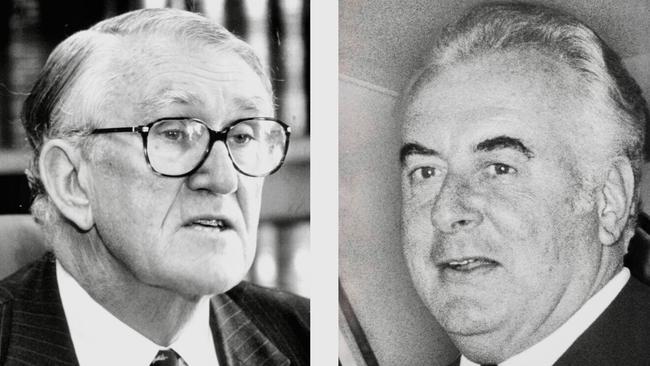
The centrist dad sits between the reactionary right and revolutionary left. They favour moderation, realism, pragmatism, compromise and gradualism in implementing a reform agenda. This might be called the vital centre seeking progress towards better outcomes or perhaps a radical centrist approach that seeks bolder change, or a third way strategy.
With a focus on their immediate hip pocket and future retirement, identifying with aspiration and opportunity, eager to see everyone treated with respect and dignity, and tired of mindless culture wars, concerned about the education and career prospects and wealth creation of their children, centrist dads are eager to preserve what works and change what does not.
They see good ideas associated with the centre-right such as lower taxes and less spending, strong borders and orderly immigration, effective defence and foreign policies. And they identify with ideas championed by the centre-left such as access and equity in health and education, a targeted social welfare safety net and supporting action on climate change. They yearn for the age of giants from the 1970s to the 2000s, with leaders who took risks, were bold and up-ended established policy norms. I’m talking about Gough Whitlam, Malcolm Fraser, Bob Hawke, Paul Keating and John Howard. They bestrode the political stage with intellect and vision, could give eloquent speeches and convince voters of the need for change, and turned the country in a new direction. They supported policies their opponents advocated.
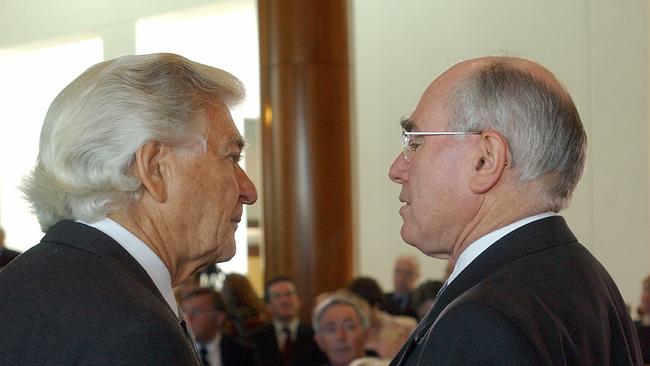
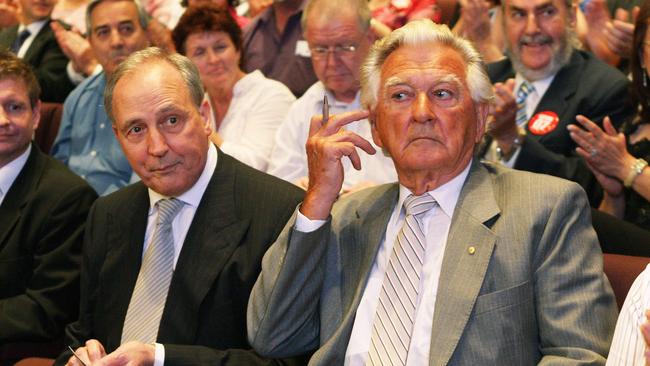
Now, centrist dads have come in for criticism. But they are not bar-room bores. They are not into mansplaining. They are too civic-minded, patriotic and engaged for that. They seek a new way forward with evidence-based policymaking and common ground. They reject ideological rigidity. They tune out from the shouty, performative, one-eyed outrage without solutions that pollutes the political discourse. They want the centre to hold.
In the post-war years, 70 to 80 per cent of voters always opted for the same party. In 1987, it fell to 63 per cent. By 2022, it was 37 per cent. Labor has just 12 per cent reliable voter support while the Coalition has 16 per cent, according to the Australian Election Study. No wonder at the 2022 election 31.72 per cent of voters cast a ballot for minor parties or independents.
The upshot is the major parties can no longer rely on solid voting blocs to sustain their hegemony. Major party dealignment is shaped by occupation, gender, age, culture and geography. The common factor is obvious: the major parties have failed. This election will deepen the electoral fractures. Centrist dads are just one of the voter cohorts looking for a different style of politics.
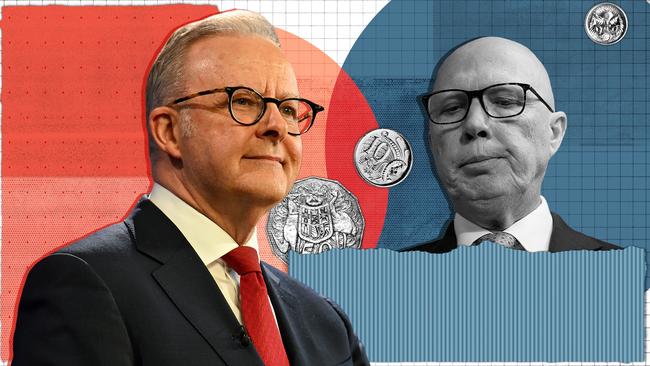
At this election, Gen Z (1994-2012) and millennial (1980-94) voters will outnumber baby boomers (1945-65) for the first time. Generation X (1965-80) is caught between this emerging new plurality and the fading post-World War II generation. Gen Xers are likely to have the most centrist dads but this cohort also includes millennials and some zoomers.
This election marks the end of baby boomer voting power. The future will be determined by younger generations, namely Gen Z and millennials with Gen X still important. These generations are looking to alternatives to the major parties. They think there is a different way to run the country. Their voting choices, however, will not be fixed and their votes are up for grabs.
Having voted both Labor and Liberal in recent elections, and with two teenagers living a suburban middle-class life, I identify with centrist dads. Labor has moved to the left and the Liberals have moved to the right. I despair at the lack of courage, vision and compromise in politics. The middle is, as ever, the key electoral battleground. If only there were a party that occupied the centre.



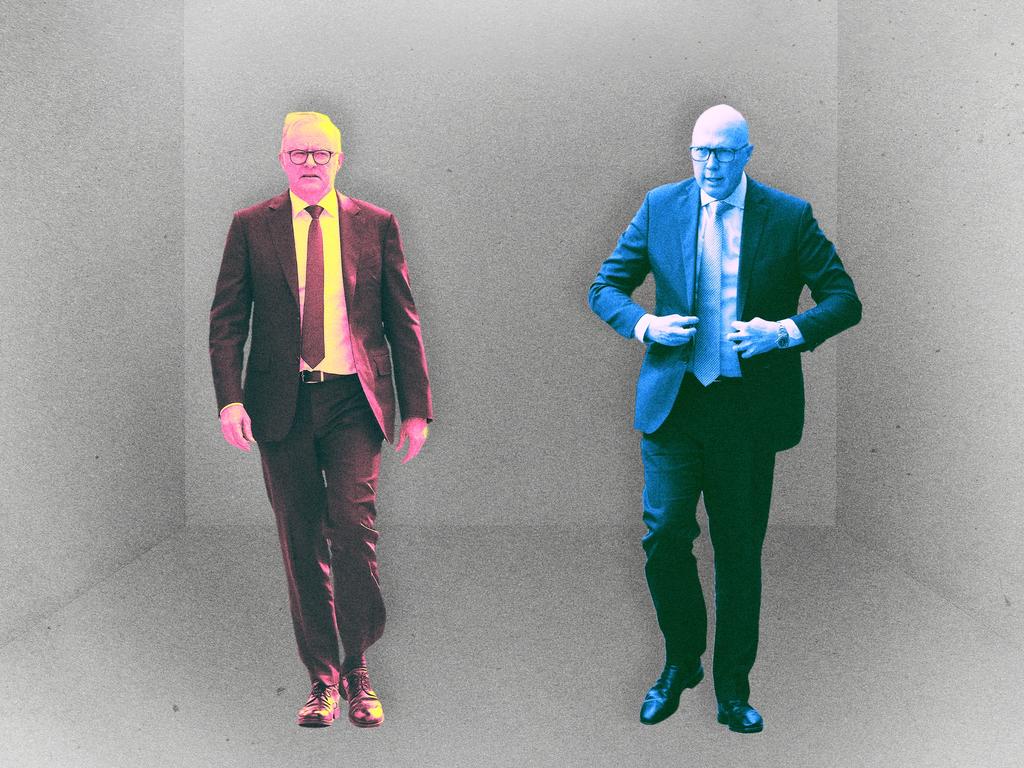


To join the conversation, please log in. Don't have an account? Register
Join the conversation, you are commenting as Logout